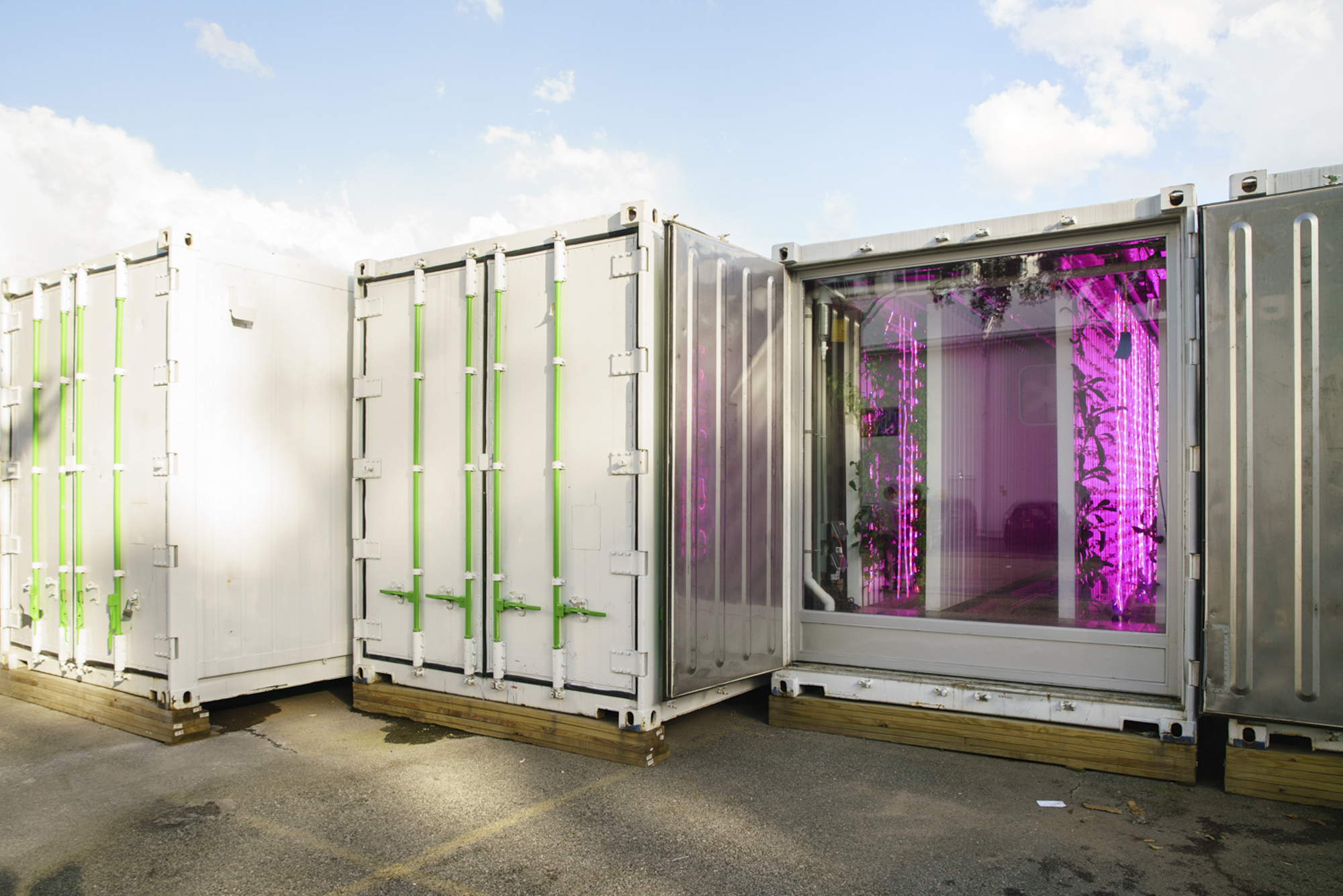
How Square Roots Is Farming For The Future
In the early 1800’s English scientist Thomas Malthus famously predicted a demographic crisis. He thought that population growth would soon outstrip our capacity to farm, leading to mass starvation and death. For the last two centuries, incredible developments in agricultural technology have kept us out of the jaws of this Malthusian trap. But, with so much arable land now under cultivation, and a global population on track to hit almost 10 billion people by 2050, it seems clear that we cannot continue to ramp up our current agricultural practices without fatally wounding our planet. This is why a new generation of farmers are turning to radically different methods of agriculture to meet the demands of the 21st century. Of these ideas, one of the most widely embraced is hydroponic farming.
Hydroponic farming is simply the art of growing plants without soil, instead using water that contains all the nutrients they need. Hydroponics have several advantages over conventional farming. Hydroponic farming is not dependent on the weather, uses up to 90% less water, and when done right is remarkably energy-efficient. But the most important advantage hydroponic farming has is that it makes more efficient land use possible. Hydroponic farms can be located anywhere that has access to water and electricity. Crucially, this can be located within or just outside of cities, which helps eliminate another environmental disaster– the cost of shipping fresh vegetables across the country.
Square Roots in Brooklyn is the latest startup to embrace hydroponics as a solution to feed the planet. Operating out of an old Pfizer plant in Brooklyn– a choice symbolic of their desire to end the current petrochemical agricultural system– they are trying to bridge the gap between radical Silicon Valley-style disruption and everyday agriculture. Square Roots uses old shipping containers retrofitted with LED lights, irrigation systems, and racks for the plants. Using these elements as building blocks, the Square Roots team is thinking ahead, and imagining a radically different farm landscape.

The most tasty greens ever, according to this photographer.

Meet up participants chat with entrepreneurs and sample produce.

Meet Up participants gather around to peer into a glass-enclosed container. participants gather around to peer into a glass-enclosed container.


Sage (foreground) and oregano (background) spend three weeks in the seedling tray before they are moved to the towers.

Peeping at climate-controlled spinach. Intense pink light comes from mixing red and blue LED lights, the most beneficial for plants.

Square Roots co-founder Tobias Peggs leads a popular tour of their urban farming campus.

Square Roots master grower Phil Cuddeback talks shop at the farm tour.

The Square Roots Brooklyn campus overlooks Bedford-Stuyvesant's Marcy Houses, a public housing project and the childhood home of Jay-Z.
Knowing that technology is changing the way that our cities are laid out, the company is dreaming big. An example of this– What if self-driving cars eliminate the need for parking garages, what do you then do with those empty buildings?— Square Roots wants to fill them up with farms. By stacking shipping containers in now redundant lots, Square Roots can magnify just how much produce can be extracted by one piece of land. They see a future where these urban farms are present in every major city, sharing data, so you can produce any plant to precise specifications.
Hydroponics is currently limited because growing more mass requires more light and energy. That is why most hydroponic products currently sold are small or light, such as cherry tomatoes or varieties of lettuce. Square Roots currently sells a variety of greens, although the specifics are up to the farmers running each container. But, the team is confident that in time technological advances will allow the cultivation of more mass-intense vegetables. If this happens, their dream of integrated urban farms may soon be an inevitability for all cities. We may yet see a future in which the vast majority of vegetables at urban supermarkets are grown in the cities themselves– cities that may look a lot different than they do today.











































